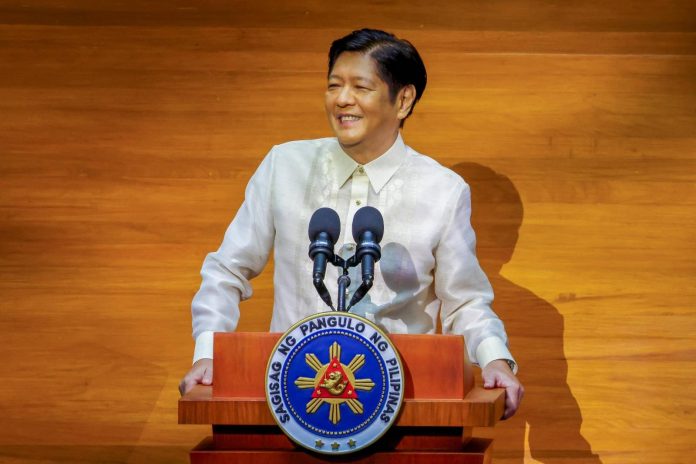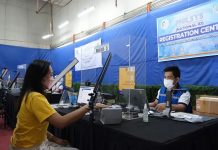Dabawenyos welcomed the second State of the Nation Address (SONA 2023) of President Ferdinand Marcos Jr. on Monday.
Marcos highlighted issues including economic recovery from the pandemic, and renewable energy, and urged Congress to prioritize the passage of “essential” new tax measures.
The president took pride that the inflation rate is moving in the right direction.
“What this means is that in spite of all the difficulties, we are transforming the economy. We are stabilizing the prices of all critical commodities,” he said.
In terms of agriculture, Marcos vowed to address the high prices of commodities and help both farmers and consumers by going after agricultural smugglers, hoarders, and price fixers.
“The SONA was comprehensive and is founded on science and numbers. It has tackled head-on the ills that the nation currently faces and provides solutions to them. More particularly in agriculture, where the culprits of the malady are mentioned-smugglers, hoarders-will soon be addressed,” said Dr. Adrian Tamayo, an economic analyst.
Tamayo also said that the macro fundamentals including inflation, monetary policies, and built capital requirements are necessary ingredients to push forward the nation’s growth.
“I welcome the President’s statement on pushing for more inclusive growth that will involve our agricultural sectors to be more competitive and be able to help in bolstering our current food security position. This will call for the continuous strengthening of our agricultural value chains to be effective in dealing with rural poverty,” said Antonio S. Peralta, Honorary Consul of Finland to Mindanao and chairman of the European Chamber of Commerce in the Philippines-Southern Mindanao Business Council (ECCP-SMBC).
Peralta commended the President for pushing for more renewable projects to meet the growing power needs of the country as it continues its economic growth.
Marcos reported that his administration is aggressively promoting renewables, so that it provides a 35 percent share in the power mix by 2030, and then on to 50 percent by 2040.
According to him, the government has also invited foreign investors in renewable energy to make full electrification within reach.
“Right now renewable energy accounts for a third of our energy mix. This will have to increase over the coming years. We cannot simply go back to the dark ages of the 90s where electricity shortages were rampant,” Peralta said.
Tamayo said for Mindanao, the relevance and associational impacts are in the direction set by Marcos in achieving 100% electrification by the end of his term.
“The emancipatory support to agrarian farmers as well, the renewable energy, the blue economy, the water concerns,” he said.
Meanwhile, Peralta said the need to address serious challenges posed by climate change must be sustained as the impact of severe weather conditions has now become a larger global concern from the adverse events we have seen in Europe and the US.
On the matter of pushing for more infrastructure investments, Peralta also said that the President was steady in keeping capital spending at 5-6% of Gross Domestic Product (GDP).
“This is important as infra connectivity accounts for 83% of the current infra programs,” he said.
On the matter of increasing the pace of digitization, he also lauded the President for stressing the importance of serving the needs of communities to improve the ease of doing business and carrying on the continued efforts to minimize corruption.
On his end, Tamayo said the recognition of the BPO sector is another important step in pursuing technology capital.
“Again, a necessity in this time of fast-changing global village,” he said.
“Hopefully, the achievements as spelled out by PBBM like reduced prices of food and medicines, ease of doing business through digitalization, more affordable housing, and many others are for real and strongly felt by the ordinary Filipinos and will result in better lives for all,” said Arturo M. Milan, acting chair of the Regional Development Council 11 (RDC 11) and area vice president for Mindanao of the Philippine Chamber of Commerce and Industry (PCCI).







